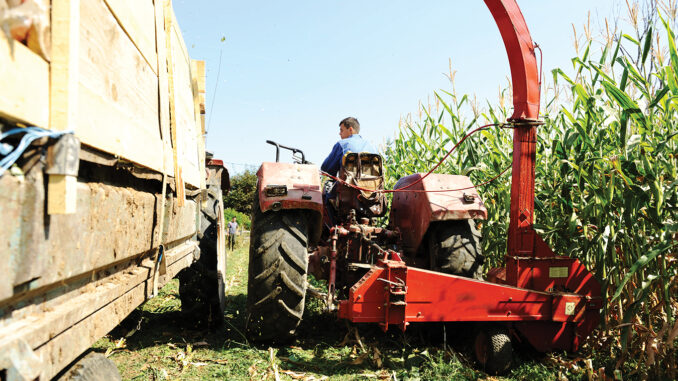
In our area of the country, fall has always been associated with “harvest time.” Although more and more of our region’s beautiful farmland has been developed into residential, commercial and industrial use, we still have a large amount of farm operations in our area. Thank goodness. These businesses not only employ a lot of folks, they provide valuable agricultural products for all of us to use and enjoy. Thank you to all the farmers and their families for the hard work they do each and every day. Thanks also for the lessons they lay out for all of us to observe, and hopefully help us to learn. Farmers don’t have a harvest without a lot of hard work. Harvest time begins as soon as the previous harvest time ends. Farmers start planning for the next harvest immediately after the current harvest (some perhaps earlier). This planning is critical to the success of the farm/business. What crops will need to be rotated differently in the coming year? How does the land need to be prepared for the winter so that it is ready for spring planting? What seeds and chemicals need to be ordered for the coming planting season? What testing needs to be done to the land to assure the best use of all the resources? These are just a few of the questions all crop farmers face at the end of harvest time.
Harvest time also marks the time for celebration. Celebration of results from the hard work of everyone involved. When I was a young man, I remember fall being the biggest time of year for purchases by lots of folks in this community and region. It was especially true for the tobacco harvest. When the tobacco was taken to market, many people paid off their debts and bills. Lots of new cars and trucks and tractors were purchased this time of year. Tobacco money paid for a lot of things – food, clothing, shelter, tuition, books, travel, mortgages, furniture and on and on. Farmers taught us (and many had to adapt and learn as well), that we should “never put all of our eggs in one basket.” Tobacco farming was a great lesson in this rule. At one time tobacco was a major crop that accounted for a large percentage of income for many folks – including the merchants in our area. Now, not so much. Tobacco now accounts for a very small part of the agricultural economy in this region. Those farmers that had “all their eggs” in the tobacco basket either adapted or went out of business. Fortunately, most farmers were already diversified by producing other crops and many were also in livestock. To their credit, this diversification allowed them to adapt to the ever-changing world of business.
The business of farming is complex. Farmers assume large risks in what they do. The most consistently profitable farmers seek to lessen the risks and limit their exposure to risk through diversification and through the use of best practices (utilizing new technologies, coaching by experts, trying new methods, etc.). In the end, farmers operate in a world of faith. Some years they lose money. Some years they do very well and are very profitable. By knowing the facts and understanding the risks, farmers can more calmly and rationally make fully-informed decisions. The risks in farming are very much like the risks of all businesses (although weather and climate more directly affect outcomes more acutely in farming than most other businesses). Farmers are great examples to us and help teach us to assess the risks in our own lives, both in business and our personal lives. By recognizing and attempting to understand risk, we help to remove some of the fear of risk. This doesn’t mean that risk is not real. It means that we assess risks and measure how much risk is appropriate in our lives. This lesson taught through the daily lives of farmers is certainly applicable to investing – for all of us. Thank you to all the farmers in our region. The fields of harvest you share with us are beautiful. I hope we recognize all the hard work and planning that our area farmers must go through to provide the harvest. And thanks for the lesson of planning that we can use in our daily lives. Happy harvest time!
-by Ben Smith
Registered Principal, RJFS
313 East 10th Ave. • Bowling Green, KY 42101 • Phone: 270-846-2656
The information contained in this report does not purport to be a complete description of the securities, markets or developments referred to in this material. The information has been obtained from sources considered to be reliable, but we do not guarantee that the foregoing material is accurate or complete. Any opinions are those of the author, and not necessarily those of Raymond James. Expressions of opinion are as of this date and are subject to change without notice. Every investor’s situation is unique and you should consider your investment goals, risk tolerance and time horizon before making any investment. Investing involves risk and you may incur a profit or loss regardless of strategy selected. Be sure to contact a qualified professional regarding your particular situation before making any investment or withdrawal decision.
Ben Smith Life Compass Financial is not a registered broker/dealer and is independent of Raymond James Financial Services, Inc. Securities offered through Raymond James Financial Services, Inc. Member FINRA/SIPC. Investment advisory services offered through Raymond James Financial Services Advisors, Inc.




